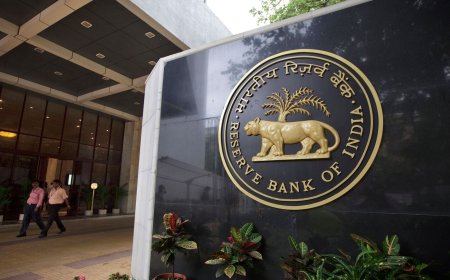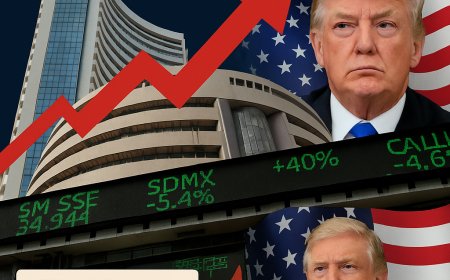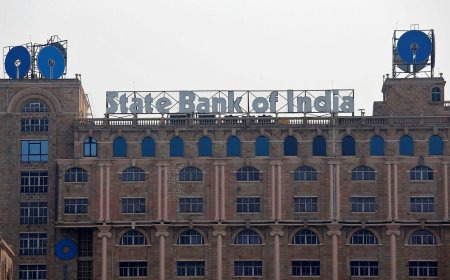India will respond appropriately if UK levies carbon tax, says Piyush Goyal
India may take reciprocal steps if the UK imposes a carbon tax on imports, says Commerce Minister Piyush Goyal. Learn about the policy, trade impact, and investor outlook.

New Delhi, July 26, 2025 — India has issued a strong message to the United Kingdom over its potential imposition of a carbon tax on imports, warning that any unilateral decision could invite reciprocal measures. Union Minister of Commerce and Industry Piyush Goyal made the statement on Friday during a trade dialogue, underscoring New Delhi's intent to protect its economic interests while continuing to support global climate goals.
UK’s Proposed Carbon Border Tax Sparks Concern
The UK government has proposed a Carbon Border Adjustment Mechanism (CBAM) similar to the European Union’s policy, aimed at taxing imports from countries with lower environmental standards. The move, which would initially target energy-intensive sectors like steel, aluminium, cement, and fertilizers, is being positioned as part of Britain's broader climate strategy.
However, Goyal emphasized that such unilateral carbon taxes risk becoming protectionist trade barriers under the guise of environmental responsibility.
“India supports sustainable and green growth, but any carbon tax that is discriminatory or lacks transparency will be met with a proportionate response,” said Goyal during the UK-India Joint Economic and Trade Committee (JETCO) meeting held virtually on Friday.
India’s Climate Commitments and Trade Interests
India has made significant strides in decarbonization. It is among the few G20 nations on track to meet its Paris Agreement targets. Its commitments include achieving net zero emissions by 2070, and installing 500 GW of renewable energy capacity by 2030.
Indian officials argue that developing economies should not bear the brunt of developed nations’ historical emissions. Goyal reiterated that environmental measures must not become instruments of economic coercion.
“Climate action must be equitable and considerate of differentiated responsibilities. India's trade should not be penalized for growth-oriented emissions that are still below per capita global averages,” he added.
Analysts Warn of Trade Frictions
Trade experts view the UK’s move as part of a rising trend in Western economies that could lead to new non-tariff barriers. Similar to the EU's CBAM, the UK carbon tax could impact Indian exporters of steel, aluminum, and other energy-intensive goods.
“The introduction of a carbon tax without multilateral consensus will escalate trade tensions and invite WTO disputes,” warned Anjali Verma, Senior Trade Analyst at Centrum Policy Advisory. “India is rightly defending its interests. A tit-for-tat carbon levy could follow if fairness is not ensured.”
She noted that Indian steel and cement exports to the UK amount to over $1.2 billion annually, and a carbon tax could reduce competitiveness by 6–9%, depending on the tax structure.
UK Seeks Balance Between Climate and Trade
While the UK maintains that its planned CBAM is designed to curb carbon leakage—where production shifts to countries with lax emission norms—it has also pledged technical assistance and transition funds to support exporters in developing nations.
“The UK remains committed to a just and inclusive transition,” said a UK government spokesperson. “We are in active discussions with trading partners like India to ensure that CBAM implementation is fair, phased, and aligned with global norms.”
WTO Compatibility and Global Pushback
India has previously raised the issue of carbon border taxes at the World Trade Organization (WTO), arguing that such taxes violate non-discrimination principles. The developing world, including Brazil, Indonesia, and South Africa, has echoed these concerns.
Legal experts believe that unless the carbon tax is non-discriminatory, transparent, and linked to actual emissions data, it could violate Article XX of the GATT, which deals with environmental exceptions.
“Any carbon levy must not arbitrarily discriminate or unjustifiably restrict trade,” said Rohan Mehta, an international trade lawyer based in Geneva. “India may have a strong case if the UK fails to adhere to WTO-compatible frameworks.”
Market Context and Industry Reaction
India’s steel and cement manufacturers have expressed unease over the looming carbon tax, particularly at a time when input costs remain high and global demand is softening.
“A carbon tax by the UK would put Indian exporters at a disadvantage, unless there is a rebate or support mechanism,” said Ramesh Gupta, Executive Director of the Indian Steel Exporters’ Association. “We urge the government to negotiate carve-outs or mutual recognition of carbon efficiency standards.”
Shares of major exporters like JSW Steel, Tata Steel, and Ambuja Cements saw minor intraday declines following the news. Analysts, however, expect limited short-term market reaction unless the UK publishes a detailed CBAM roadmap.
Investor Outlook: Watch for Retaliatory Policy Signals
Market participants are watching closely for signs of India’s countermeasures. If the UK moves forward unilaterally, India may consider imposing carbon surcharges or reciprocal tariffs on UK goods. Such action could affect UK exporters of automobiles, chemicals, and spirits, which are among Britain’s top exports to India.
Investors in carbon-intensive industries should also prepare for ESG-linked disclosures to become more critical in global trade. Carbon transparency tools and certification systems may emerge as key compliance strategies.
“Firms with strong ESG alignment will weather the carbon tax storm better,” said Alisha Roy, ESG and Trade Specialist at Nomura India. “The market is entering a new era where carbon pricing will be as important as currency risk.”
India’s warning to the UK over its planned carbon tax reflects growing tensions between trade and climate policy. While both nations remain committed to their Free Trade Agreement (FTA) negotiations, unilateral moves on carbon pricing could stall progress and lead to retaliatory steps. The coming months will be crucial as India seeks to balance climate diplomacy with economic sovereignty.
What's Your Reaction?
 Like
0
Like
0
 Dislike
0
Dislike
0
 Love
0
Love
0
 Funny
0
Funny
0
 Angry
0
Angry
0
 Sad
0
Sad
0
 Wow
0
Wow
0












































































